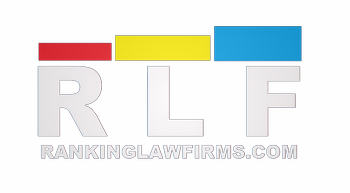Last Updated on March 31, 2024 by Ranking
Becoming a lawyer in Switzerland is an esteemed and rewarding career path. Whether you are a law student or a practicing lawyer from another country, this article will provide you with all the information you need to navigate the process of becoming a lawyer in Switzerland. From the educational requirements to the professional qualifications, we will guide you through the steps necessary to achieve your goal. So, let’s dive in!
1. Educational Requirements
To become a lawyer in Switzerland, a solid educational foundation is essential. The first step is to pursue a degree in law from a recognized university. The study of law typically takes several years, with a focus on core subjects such as civil law, criminal law, and administrative law.
2. Practical Training
After completing a law degree, aspiring lawyers in Switzerland are required to undergo practical training. This practical training can be completed through a two-year internship at a law firm, court, or government agency. During this period, you will gain valuable hands-on experience and insights into the legal profession.
3. The Bar Exam
Once the practical training is complete, aspiring lawyers must pass the bar exam, which consists of both written and oral components. The written exam covers various areas of Swiss law, including civil law, criminal law, and administrative law. The oral exam typically involves presenting and defending legal arguments in a simulated case scenario.
4. Professional Experience
After successfully passing the bar exam, lawyers in Switzerland are required to gain professional experience. This typically involves working as a lawyer for a minimum of two years, honing your skills and building your reputation in the legal field.
5. Registration and Licensing
To practice law in Switzerland, it is necessary to register with the respective cantonal bar association. Each canton has its own bar association, and registration requirements may vary slightly. Once registered, you will be licensed to practice law in the specific canton where you are registered.
6. Specialization and Continuing Education
After becoming a licensed lawyer in Switzerland, there are various opportunities for specialization and continuing education. You can choose to specialize in areas such as labor law, family law, or liability law. Specializing in a specific area of law can enhance your expertise and open up new career opportunities.
Additionally, you may consider pursuing higher professional qualifications such as a Higher Federal Diploma (HFP) in areas like accounting or tax law. Another option is to pursue a doctoral degree in law (dr. iur.), which can deepen your knowledge and expertise in a specific legal field.
7. Career Paths
As a qualified lawyer in Switzerland, you have several career paths to choose from. You can work in a law firm, either as an associate or as a partner, handling a wide range of legal matters for clients. Another option is to work in the legal department of a company or government agency, providing legal advice and representation.
For those interested in the judiciary, you can pursue a career as a district, appellate, or federal judge. This path requires extensive legal knowledge and experience, as well as a strong commitment to upholding justice.
8. Opportunities for Foreign Lawyers
If you are a lawyer from another country and wish to practice law in Switzerland, there are opportunities available. The Swiss legal system recognizes the qualifications of lawyers from EU/EFTA member states, as well as Iceland, Liechtenstein, and Norway.
Under the Federal Act on the Free Movement of Lawyers, lawyers from these countries are allowed to work in Switzerland for up to 90 days per year under their home country’s professional title. If you wish to practice law in Switzerland on a long-term basis, you will need to meet additional requirements, such as registration with the cantonal bar association or passing the Swiss bar exam.
9. Language Requirements
In Switzerland, language proficiency is crucial for a successful legal career. The country has four official languages: German, French, Italian, and Romansh. Depending on the canton and the linguistic region, you will need to have a strong command of the relevant language(s) to effectively communicate with clients, colleagues, and the judiciary.
10. Salary Expectations
As a lawyer in Switzerland, your salary will depend on various factors such as your experience, specialization, and the size of the firm or organization you work for. According to industry reports, entry-level lawyers can expect to earn an annual gross salary ranging from CHF 80,000 to CHF 120,000.
Becoming a lawyer in Switzerland requires dedication, perseverance, and a solid educational foundation. From completing a law degree to practical training, passing the bar exam, and gaining professional experience, each step is essential to achieving your goal. Whether you are a law student or a practicing lawyer from another country, the Swiss legal profession offers a wide range of opportunities for personal growth and career advancement.
If you are considering a career in law in Switzerland, it is important to stay informed about the latest developments and requirements in the legal field. Research the specific regulations and processes in the canton where you wish to practice, and consult with professionals or legal associations for guidance along the way. With the right qualifications and a passion for justice, you can embark on a successful legal career in Switzerland.




